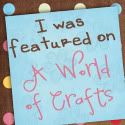The curriculum is conveniently packaged in the above box. It comes with the teacher manual, 3 sets of flash cards, 4 CD's, a whiteboard paddle, a dry erase marker, a CD holder page and 2 plastic card holder pages.
All we needed to supply was a CD player (or DVD player as our CD player stopped playing the disc for some reason), a binder, index cards (or card stock cut to 2.5 inches by 3.5 inches), and a notebook to write out words and sentences.
With this curriculum we were able to open it and get started. All I had to do was remove the teacher manual pages from the shrink wrap and place them in the binder as they are already hole-punched. A front cover, back cover and spine label were also included, though we were unable to use them as I do not have a see-through cover binder at this moment (I used to, I am just not sure where it is and what it is being used for). I decided to place the covers and spine in the inner pockets of my binder for now. As I don't have many binders being used for schooling (this is the only one) I will know that this is our Flip Flop Spanish Binder.
Included in the teacher manual pages are the actual lessons that follow along with the CD's.
There is also a See It & Say It Quick Look Guide so you can see what lesson is on what CD plus what you will be doing during the lesson.
For example, we may be doing practice, Te toca a ti (It's your turn), a speed review or sentences to name a few of the lessons types.
Additionally, there are some introduction pages explaining how to implement the lessons, how to pronounce the vowels, how to say some common conversational phrases and how the program is divided into 4 semesters for a complete 2 year program. Older children can go through the program faster, but this schedule is perfect for our young girls. We do one lesson per week, repeating the information on the CD for 3 days to help with retention, but also adding some activities to keep it fun.
In the back of the teacher manual there are also two different indexes of all the words in the program. The first index is arranged alphabetically by English word and shows which lesson the word will be taught in and which card set you will find it in (verde, azul, or rojo). The azul deck is listed first, then the homemade cards, then the rojo cards and finally the verde cards.
There is also a "Words Listed by Lesson" index, but this one was a bit more difficult to follow.
The CD's are stored in the CD holder in the back of the binder.
As I have stated, there are 3 different card decks included in this program. Each of these decks are available separately as they were sold prior to this curriculum being published. It appears to me that Señora Gose has taken these card decks and made a curriculum to include them, which I think is really cool.
Here is a little more information about each card deck.
- Verde/Green includes more commonly used words such as Body Parts, Household Items and Phrases & Adjectives to help made the nouns usable.
- Azul/Blue includes Clothing, Verbs, Rooms and more Phrases & Adjectives to make these words more usable.
- Rojo/Red includes Animals, Verbs, Adjectives, Question Words and Locations
I am keeping the decks separated by using rubber bands, as suggested. For now I am storing them in the box, but I would eventually like to get some sort of pocket to go inside the binder so I do not need to have both the binder and the box on my shelf.
Here you can see 4 separate decks. The extra deck includes the cards we will be using in the current lesson.
Each card is double-sided with a picture on one side and the Spanish word, Pronunciation and English translation on the other side.
I love the way these cards have the picture on one side and the words on the other side. When we lay out the cards we are to do so picture side up. As Señora Gose says the words on the CD in Spanish we have a chance to find the correct card and say the word. We can then check to make sure we are correct by flipping over the card. Next we can make sentences by placing the cards, again picture side up, in the order she tells us to. Later we practice building our own sentences the same way. By having only the picture on the one side it encourages us to relate the picture to the Spanish word we hear.
So, how exactly did we use this curriculum?
Before starting each lesson I skimmed it to find out what we are going to be doing and which cards we are going to need. The manual notes which tracks are going to be used on the CD.

There is no additional lesson planning, though we do need to occasionally make some extra flashcards for words that are not in the decks but are essential to making sentences. So far we have had to make cards for and (y), but (pero), and with (con). This is not an oversight by the author. Señora Gose states by having the student help make some of these needed words that are not in the decks the child will "truly 'OWN' your Flip Flop Spanish Curriculum." I did discover I needed to read the entire lesson a bit more thoroughly before starting the CD with the children as it isn't always noted at the beginning of the lesson that we were going to have to make the new card. It was a bit distracting to have to stop the lesson to make the card. I guess it sort of took me by surprise, because in Lesson 1 it is noted at the beginning, but in Lesson 4 it isn't mentioned until the middle of the lesson and we are told to hit pause to make the card.
When we first started this curriculum we gathered at the school table and listened to Señora Gose teach the lesson from the CD, laying the cards out on the table and finding the correct card and making sentences. When our CD player stopped working I decided we would play it in the DVD player. This has worked out so much nicer because we can sit on the living room floor in a circle and lay the cards out in the middle.
So far, in lessons 1-4 we have had to lay out the cards needed for the specific lesson and then point to them, repeating what Señora Gose had said. The first lesson included "Me gusta/I like" and "Necesito/I need" so we could immediately start forming some sentences. After we go over the words, we practice them again and then she has us find specific cards and lay them out together to make sentences.
When we are done with the lesson on the CD the girls may continue making sentences or we could play a game. We have used the paleta/paddle to play pictionary, where we take turns choosing cards and drawing the pictures for the others to guess. The person who guesses what is being drawn gets to keep the card. We have also played hide and seek with the cards. One girl will hide the cards and the others will find them. As they find them they need to say the word in Spanish. In addition to the games suggested in the manual, there are a whole slew of games listed on the
Flip Flop Learning website.
The girls will also take some time to write at least one sentence per lesson in their notebooks. They are only writing once a week so as to not overwhelm them. As they get older, I will have them write a bit more.
As you can see, they started out with short sentences the first week we did these lessons.
As we added more words, especially the words y (and) and pero (but), the girls have been able to write longer sentences.
As you can see, that is quite a bit of writing, so I allow them to take their time and only do one sentence a week.
As they get to write the sentences they get to learn not only how to recognize the word when it is spoken, but how to write and read it as well.
I love that as we go further into the program Señora Gose starts speaking more in Spanish. Even in the first lesson she will say something in English and then repeat it in Spanish. For example we are told, "Touch la falda." She continues on to say, "Toca la falda." So we are learning words that are not on the cards as well. Sometimes she will tell us what new words she is going to be using, like pues (next) and listo (ready), other times she will say it and translate in the next sentence. Here is a small part of Lesson 2, exactly as she says it on the CD and as it is written in the teacher manual:
"Toca el tenedor. Did you touch the fork? Find it, touch it, say el tenedor. ¿Listo? Toca el plato. That's an easy one. Toca y di. Touch and say el plato. Pues, toca la cuchara. La cuchara. Repite, la cuchara. Finally, el pájaro. Toca el pájaro. And be sure you say it. El pájaro. Buen trabajo, good job."
I am absolutely loving the way Spanish is taught with See It and Say It Flip Flop Spanish. This program is great for both auditory and visual learners, plus there is the tactile aspect. Though Hannah hasn't been as involved, she is definitely learning, and she is at the lower end of the age range. She is still learning to talk properly in English so she is learning the Spanish right along with it. She can point to the pictures when asked and can go find the objects, so I know she is comprehending. Obviously at 3 years old she is not writing the sentences, but it is great to know she is internalizing these words. I know how important it is to start introducing a second language to a child at a young age, and this is working wonderfully.
Don't forget to check out what other Crew members thought of this great curriculum.

























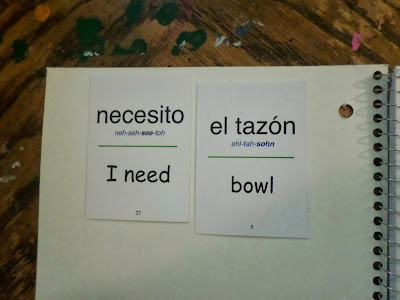




























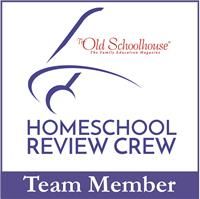










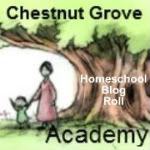




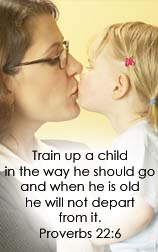



![[PREMIO2009.png]](https://blogger.googleusercontent.com/img/b/R29vZ2xl/AVvXsEjXD_Gx-wZ9EM5hXKrEYLksEBkYfRQtmb8VDVTDG_yyLggQoFIstZsh4zszdG20KqErZicRzEhiNYLty7j3IMXJYsABqkXjr8pp-ncj71xCbpxlXGbGpZq2fTuDQqq1RMKV4DPcDBnBViA/s1600/PREMIO2009.png)
